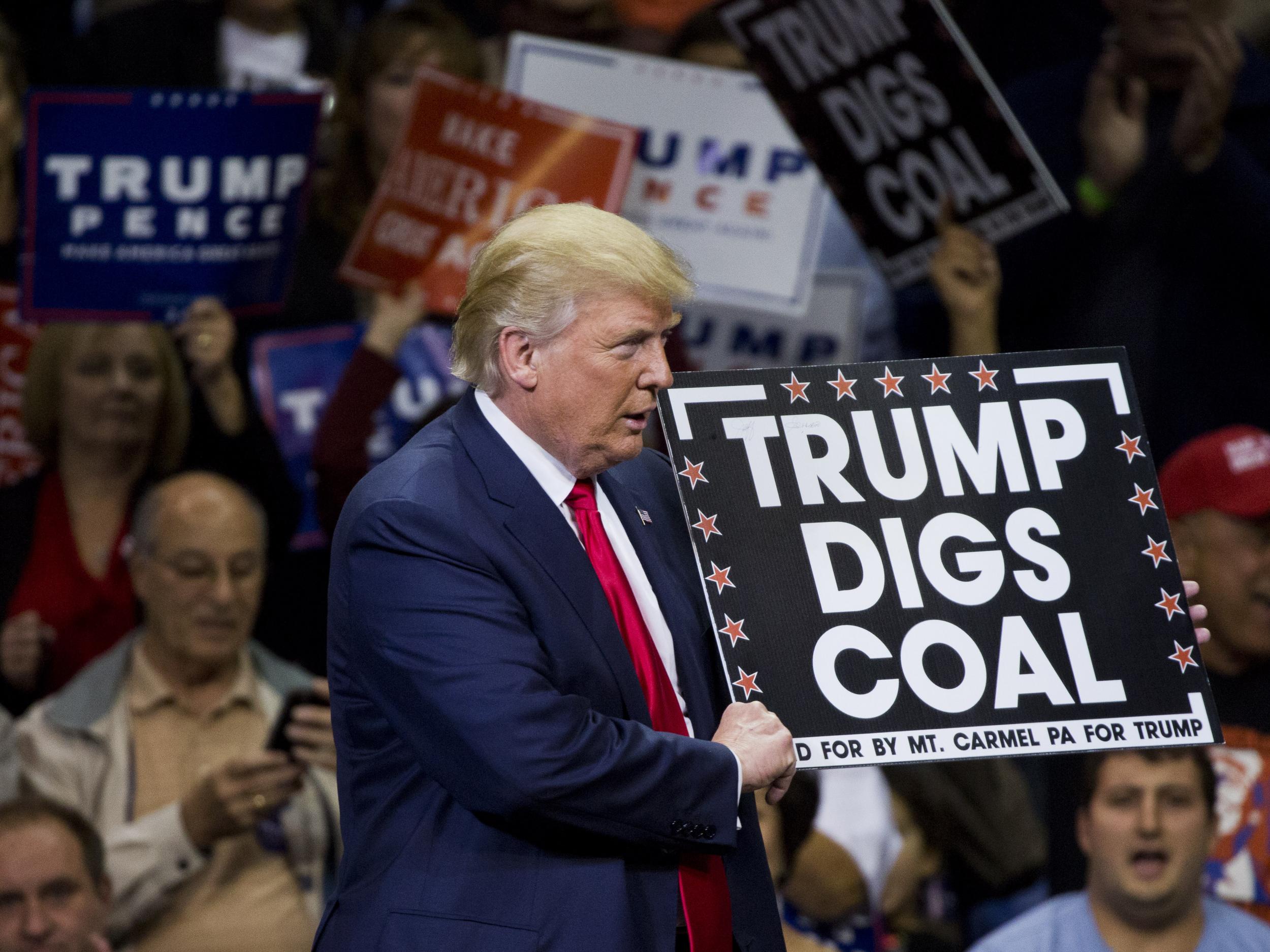Donald Trump suppressed report into coal mining’s risk to public health, accuses world-leading Nature scientific journal
Scientists have voiced fears that the United States could become like Soviet Russia where ideology was more important than hard evidence

Your support helps us to tell the story
From reproductive rights to climate change to Big Tech, The Independent is on the ground when the story is developing. Whether it's investigating the financials of Elon Musk's pro-Trump PAC or producing our latest documentary, 'The A Word', which shines a light on the American women fighting for reproductive rights, we know how important it is to parse out the facts from the messaging.
At such a critical moment in US history, we need reporters on the ground. Your donation allows us to keep sending journalists to speak to both sides of the story.
The Independent is trusted by Americans across the entire political spectrum. And unlike many other quality news outlets, we choose not to lock Americans out of our reporting and analysis with paywalls. We believe quality journalism should be available to everyone, paid for by those who can afford it.
Your support makes all the difference.One of the world’s leading scientific journals has accused the Trump administration of suppressing a major study into the public health risks of coal mining, saying it raises the prospect of researchers being prevented from making discoveries that the US government does not like.
Donald Trump, who has dismissed climate change as a “hoax”, has made great play of his plans to reinvigorate the coal industry in the US.
The US Department of Interior (DoI) recently ordered the prestigious US National Academies of Science, Engineering and Medicine (Nasem) to halt a $1m study into the effects of the form of coal mining known as “mountain-top removal” on the health of people living in West Virginia.
The department said simply that it was reviewing spending of projects that cost more than $100,000.
In an editorial, the journal Nature doubted this explanation and said the decision suggested the Trump administration might cancel other research that it does not like, endangering science and “academic freedom”.
It pointed out that the Nasem scientists were already about halfway through the two-year study.
“The DoI’s assertion that the decision is a budgetary one is suspect, especially given that the study has already spent a good amount of its budget,” the article said.
“It seems, instead, that the government would rather quash the review than risk it producing results that cast aspersions on the coal industry.
“This is par for the course for the DoI, whose head, Ryan Zinke, plans to downsize national parks in favour of resource extraction, and which has also suspended meetings with its independent advisory councils on issues concerning public lands.”
The decision stood out even among “near-daily news about the Trump administration weakening climate and environmental protections”, the editorial added.
“The move to pre-empt the prestigious and independent Nasem is particularly concerning. It raises questions about what other studies could be cancelled if the government fears their results. It is another blow for science and for academic freedom.”
At the annual meeting of the American Association for the Advancement of Science in Boston in February, its chief executive, Dr Rush Holt, expressed fears of scientists that ideology would become more important than evidence under Mr Trump.
“When officials use the phrase 'alternative facts' without embarrassment, we know there’s a problem,” he said.
“I’ve actually heard scientists recently talking about the need to defend the conditions in which science will thrive … they brought up the subject of Soviet agriculture, where scientists were led to believe things that just weren’t so for political reasons.
“I’ve seen it in Burma as well, where wishful thinking about how plants should grow or how fertilisers should work has contaminated the study of how plants actually grow and fertiliser actually works.
“Looking at the philosophy of science is not idle ivory-tower thinking, it’s very important.”
Join our commenting forum
Join thought-provoking conversations, follow other Independent readers and see their replies
Comments